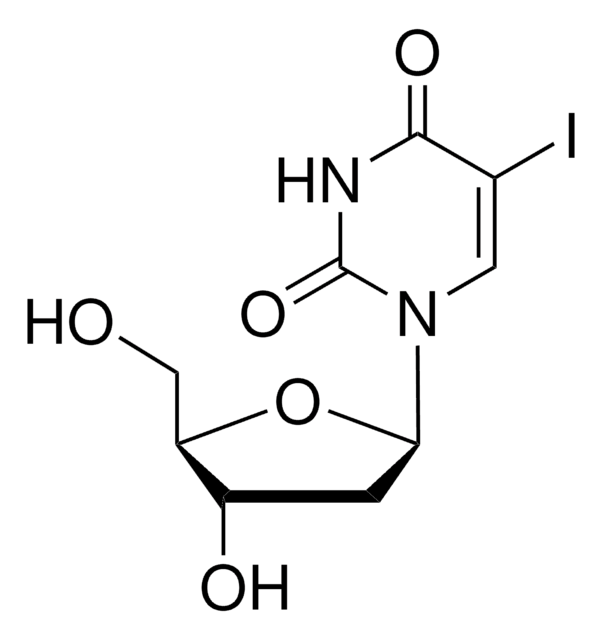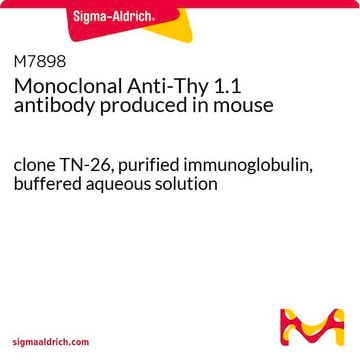C1768
Cytarabine
≥90% (HPLC), crystalline, DNA replication inhibitor
Synonym(s):
(β-D-Arabinofuranosyl)cytosine, Ara-C, Arabinocytidine, Arabinosylcytosine, Cytarabine, Cytosine arabinoside
About This Item
Recommended Products
product name
Cytosine β-D-arabinofuranoside, crystalline, ≥90% (HPLC)
Assay
≥90% (HPLC)
form
crystalline
storage temp.
2-8°C
SMILES string
NC1=NC(=O)N(C=C1)[C@@H]2O[C@H](CO)[C@@H](O)[C@@H]2O
InChI
1S/C9H13N3O5/c10-5-1-2-12(9(16)11-5)8-7(15)6(14)4(3-13)17-8/h1-2,4,6-8,13-15H,3H2,(H2,10,11,16)/t4-,6-,7+,8-/m1/s1
InChI key
UHDGCWIWMRVCDJ-CCXZUQQUSA-N
Gene Information
human ... POLA1(5422) , POLA2(23649) , POLB(5423) , POLD1(5424) , POLD2(5425) , POLD3(10714) , POLD4(57804) , POLE(5426) , POLE2(5427) , POLE3(54107) , PRIM1(5557) , PRIM2(5558)
mouse ... Cda(72269)
Looking for similar products? Visit Product Comparison Guide
Biochem/physiol Actions
Features and Benefits
Signal Word
Warning
Hazard Statements
Precautionary Statements
Hazard Classifications
Repr. 2 - Skin Sens. 1
Storage Class Code
11 - Combustible Solids
WGK
WGK 3
Personal Protective Equipment
Certificates of Analysis (COA)
Search for Certificates of Analysis (COA) by entering the products Lot/Batch Number. Lot and Batch Numbers can be found on a product’s label following the words ‘Lot’ or ‘Batch’.
Already Own This Product?
Find documentation for the products that you have recently purchased in the Document Library.
Customers Also Viewed
Articles
DNA damage and repair mechanism is vital for maintaining DNA integrity. Damage to cellular DNA is involved in mutagenesis, the development of cancer among others.
Cell cycle phases (G1, S, G2, M) regulate cell growth, DNA replication, and division in proliferating cells.
Cell cycle phases (G1, S, G2, M) regulate cell growth, DNA replication, and division in proliferating cells.
Cell cycle phases (G1, S, G2, M) regulate cell growth, DNA replication, and division in proliferating cells.
Our team of scientists has experience in all areas of research including Life Science, Material Science, Chemical Synthesis, Chromatography, Analytical and many others.
Contact Technical Service














